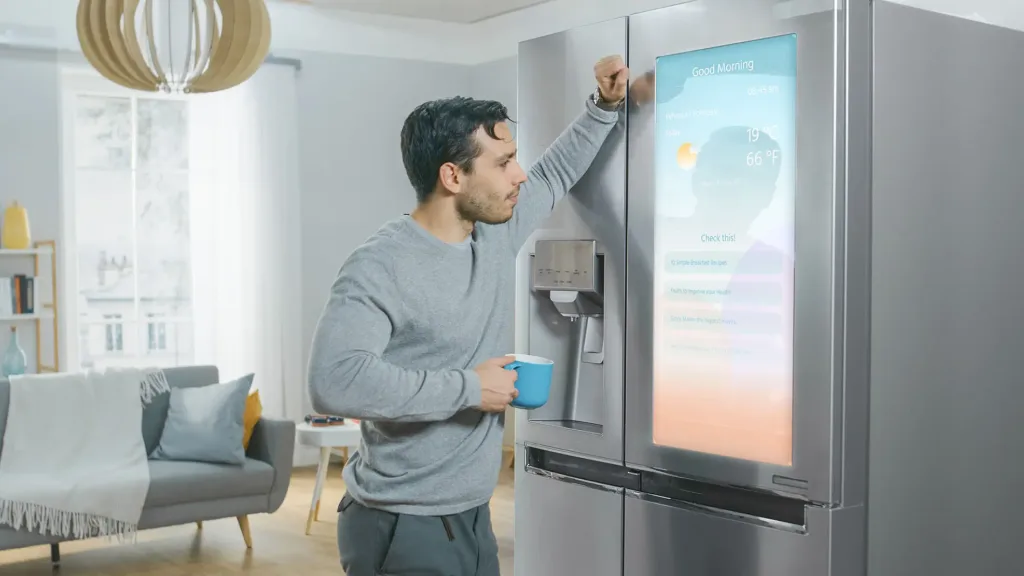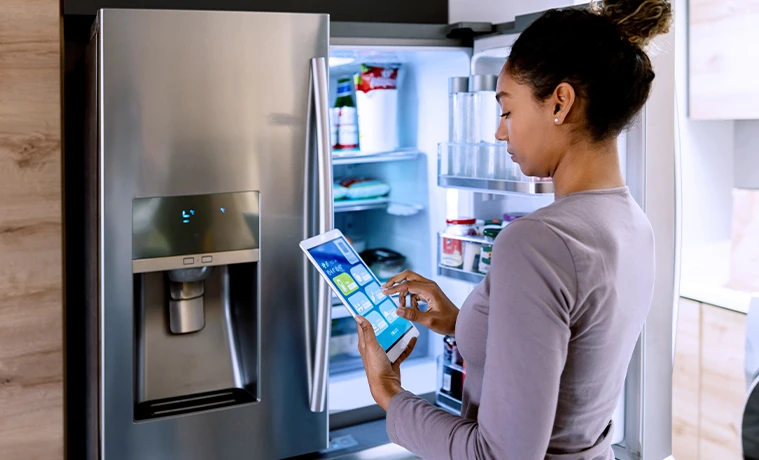Smart refrigerators have revolutionised the way we manage our kitchens, blending advanced technology with everyday functionality. These appliances go beyond traditional cooling methods, offering a range of intelligent features that enhance convenience, efficiency, and connectivity in modern homes. As households increasingly adopt smart home ecosystems, the integration of smart refrigerators becomes essential, providing users with tools to streamline their culinary experiences and maintain optimal food storage conditions. This article explores the key features, connectivity options, and innovative storage solutions that make smart refrigerators a pivotal addition to contemporary kitchens.
Key Features of Smart Refrigerators
Smart refrigerators are equipped with a variety of advanced features that set them apart from conventional models. These features are designed to improve food preservation, enhance user convenience, and optimise energy usage. One of the standout features is the precise temperature control system, which ensures that different compartments maintain optimal conditions for various types of food. Additionally, many smart refrigerators come with built-in cameras that allow users to view the contents remotely, helping to manage groceries more effectively. Touchscreen interfaces provide easy access to settings and information, while integrated cameras can assist in meal planning by displaying available ingredients. These technological advancements not only enhance the functionality of the refrigerator but also contribute to a more efficient and organised kitchen environment.
Advanced Temperature Control
One of the most significant advancements in smart refrigerator technology is the implementation of sophisticated temperature control systems. Unlike traditional refrigerators that maintain a uniform temperature, smart models can adjust temperatures in different compartments independently. This ensures that perishable items such as fruits and vegetables are stored at optimal humidity levels, while meats and dairy products are kept at the ideal cold temperatures to extend their shelf life. Additionally, these refrigerators often feature sensors that monitor the internal environment and make real-time adjustments to maintain consistent cooling. This level of precision not only enhances food preservation but also contributes to energy efficiency by minimising unnecessary cooling cycles. Users can also manage and customise these settings through smartphone applications, providing greater flexibility and control over their appliance’s performance.
Connectivity and Integration
Connectivity is a cornerstone of smart refrigerator functionality, enabling these appliances to integrate seamlessly with other devices within a smart home ecosystem. By connecting to Wi-Fi and other smart home platforms, smart refrigerators can communicate with devices such as smartphones, tablets, and voice assistants. This integration allows users to receive notifications about door status, track expiration dates of stored items, and receive maintenance alerts directly on their connected devices. Some models also offer features like voice control, enabling users to interact with their refrigerator using voice commands through platforms like Amazon Alexa or Google Assistant. This level of connectivity not only enhances the user experience but also facilitates more efficient household management by automating routine tasks and providing real-time updates on food inventory and appliance status.
Seamless Smart Home Integration
Smart refrigerators are designed to be an integral part of a broader smart home ecosystem, offering seamless integration with other connected devices. This compatibility allows users to control their refrigerator through centralized home automation systems or via voice commands using virtual assistants like Amazon Alexa, Google Assistant, or Apple HomeKit. For example, users can ask their smart assistant to check the contents of the refrigerator, receive alerts when items are running low, or adjust temperature settings without physically interacting with the appliance. Additionally, integration with smart kitchen devices, such as smart ovens or dishwashers, can create a synchronized cooking and cleaning environment, enhancing overall kitchen efficiency. This interconnectedness not only simplifies daily tasks but also provides a cohesive and intuitive user experience, making the smart refrigerator a central hub in the modern smart home.

Innovative Storage Solutions
Innovative storage solutions are a hallmark of smart refrigerators, offering adaptable and customizable compartments that cater to diverse food storage needs. These refrigerators often feature adjustable shelving, flexible door bins, and specialized drawers that can be configured based on the type and quantity of items being stored. For instance, humidity-controlled drawers are ideal for keeping fresh produce crisp, while modular shelves can be rearranged to accommodate larger containers or bottles. Some models also incorporate smart storage systems with built-in sensors that monitor inventory levels and provide real-time updates through connected applications. This not only helps in reducing food waste by alerting users to items nearing expiration but also simplifies meal planning and grocery shopping by maintaining an accurate record of available ingredients. Furthermore, features like pull-out drawers and sliding shelves enhance accessibility, making it easier to organize and retrieve items without disrupting the overall arrangement of the refrigerator.
Adaptive Storage Compartments
Adaptive storage compartments are designed to maximise the efficiency and versatility of food storage within smart refrigerators. These compartments can be easily adjusted to accommodate a wide range of items, from large beverage bottles to delicate produce. Adjustable shelving allows users to customise the height and spacing of shelves to fit different types of containers and packages, ensuring that every item has its designated place. Additionally, specialized drawers with humidity and temperature controls provide optimal conditions for specific food categories, such as fruits, vegetables, meats, and dairy products. Some smart refrigerators also feature smart containers equipped with sensors that track the contents and notify users when supplies are running low or when items are approaching their expiration dates. This level of customization not only enhances the organisation and accessibility of stored items but also contributes to better food preservation and reduced waste, ultimately leading to a more efficient and sustainable kitchen management system.

